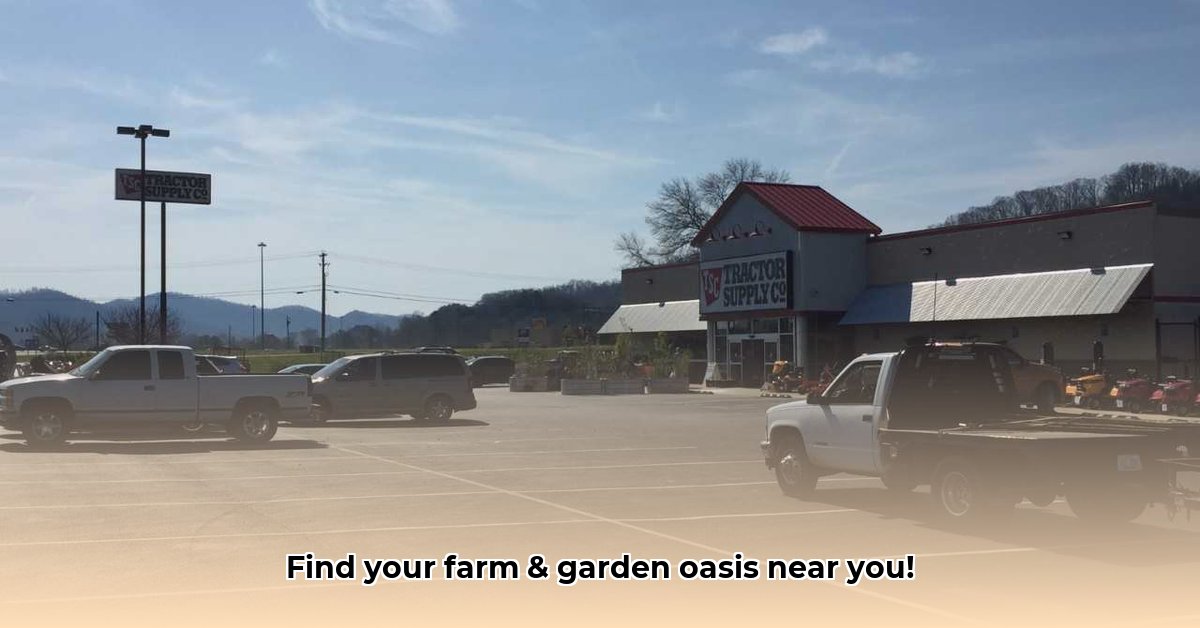
Tractor Supply Clarksburg, WV: A Case Study in Rural Retail Sustainability
Tractor Supply Company (TSC) in Clarksburg, West Virginia, serves as a microcosm of rural retail, highlighting both the opportunities and challenges inherent in balancing business success with environmental and community responsibility. This case study analyzes TSC's Clarksburg store, examining its strengths, weaknesses, and potential for future growth within a sustainable framework. The analysis pinpoints key areas for improvement and proposes actionable recommendations to bolster the store's long-term viability. For more TSC resources, check out this helpful site.
Accessibility and Product Diversity: Serving the Local Community
TSC's Clarksburg location boasts exceptional accessibility, conveniently serving residents of Clarksburg and surrounding rural communities. Its strategic positioning ensures ease of access for farmers, ranchers, and homeowners alike. Beyond accessibility, the store's expansive product range is a key differentiator. Offering over 100 varieties of livestock feed, an extensive selection of gardening supplies, and a wide array of hardware and pet supplies, TSC caters to a remarkably diverse customer base. This diverse inventory effectively supports the economic needs of the region, acting as a one-stop shop for essential goods and services. However, the question remains: how effectively does this broad product range align with sustainable practices?
Sustainability Analysis: Environmental Impact and Opportunities
While TSC's product diversity and accessibility contribute to its success, a thorough sustainability assessment reveals both strengths and significant areas for improvement. Currently, readily available information regarding sourcing practices for animal feed, packaging materials, and waste management is limited. This lack of transparency hinders a complete evaluation of the store's environmental footprint. Furthermore, the carbon footprint associated with product transportation remains largely unknown, highlighting an information gap that needs to be addressed imminently. "A critical component of long-term sustainability is transparency," notes Dr. Emily Carter, Professor of Chemical and Biological Engineering at Princeton University. "Without clear data on sourcing and logistics, it’s impossible to accurately assess and mitigate environmental impacts."
The potential for supply chain disruptions due to climate change and global events also presents a significant risk. The reliance on a potentially fragile supply chain necessitates proactive measures to ensure resilience and adaptability. Furthermore, the growing consumer demand for sustainably produced goods presents both an opportunity and a challenge. By actively pursuing sustainable sourcing and expanding the range of organic or sustainably produced products, TSC can cater to this burgeoning market and enhance its brand image.
Actionable Recommendations: A Path Towards Sustainability
To ensure long-term success and enhance its sustainability profile, TSC Clarksburg should implement the following recommendations:
Conduct a Comprehensive Sustainability Audit: A thorough audit of sourcing practices, packaging, waste management, and transportation logistics is paramount. This audit should quantify the store’s current environmental impact, identify areas for improvement, and establish measurable goals for emissions reduction and waste minimization.
Strengthen Community Partnerships: Building stronger relationships with local farmers, agricultural organizations, and environmental groups is crucial. Sponsoring community events, offering educational workshops, and participating in local conservation initiatives will foster goodwill, build brand loyalty, and strengthen TSC's role within the community.
Expand Sustainable Product Offerings: Increasing the availability of organically grown seeds, sustainably produced animal feed, and eco-friendly gardening supplies will directly address the growing consumer preference for sustainable products. This move will both attract new customers and solidify TSC’s commitment to environmental stewardship.
Enhance Transparency and Communication: Proactive communication about sourcing practices, sustainability initiatives, and community engagement is vital. A dedicated section on the TSC website and in-store displays showcasing sustainability efforts will build trust and strengthen customer relationships.
Develop Supply Chain Resilience: Diversifying suppliers, exploring alternative sourcing strategies, and implementing robust risk management plans will mitigate vulnerabilities associated with supply chain disruptions and climate change impacts. This proactive approach will ensure the store's continued operation despite unforeseen events.
Conclusion: A Sustainable Future for Rural Retail
Tractor Supply in Clarksburg possesses considerable potential for long-term success. However, its future prosperity is inextricably linked to its ability to adopt sustainable practices and engage actively with the local community. By implementing the recommendations outlined above, TSC can not only enhance its environmental performance but also strengthen its position within the community, building a more resilient and profitable business model for years to come. The prioritization of sustainability isn't merely an ethical imperative; it’s a strategic business decision that fosters growth and ensures long-term viability.